Design Technology
GCSE Fashion and Textiles

Course Overview
A brief overview of this course. Throughout year 10 you will be working to build up your skills. You will build upon skills you have already learnt in year 7,8 and 9. Through this Fashion & Textiles course you will have the opportunity to study an array of skills including; textile design, illustration, construction and decoration of textiles.
Coursework
You will be given an opportunity to complete a project in which you will choose 1 of three challenges. You will get to choose the direction you wish to take the project, creating designs, prototypes (toiles) and then a final outcome.
Written Paper
There will be a written exam to complete when you are in year 11. The exam is worth 50% of your overall grade. It is a written paper that is 2 hours long.
Practical Skills and Theory
All practical tasks will help you gain an understanding of the textiles processes. You will learn various skills in: Textile and Garment construction Fabric manipulation Fabric finishes CAD and CAM processes Surface decoration Pattern cutting And many different techniques for decoration and construction. Research into designers. Core knowledge – This section of the course explores how we can design for a sustainable future. It explores the legislation behind products and will widen your understanding of the industry. Textile specific knowledge – In this section you will explore the process of fibres to fabrics and different ways to manipulate fabrics. You will learn about different designers, smart materials, surface treatments, trendsetting and lots more. You will also have the opportunity to practice fashion illustration and CAD.
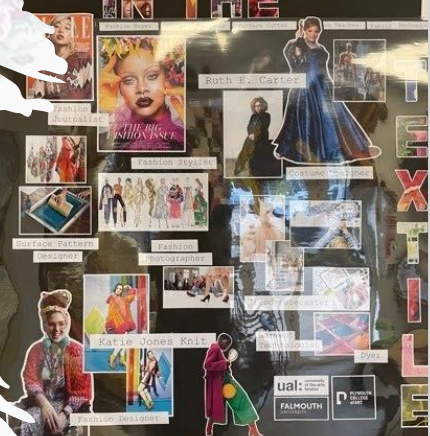 Future Careers
Future Careers
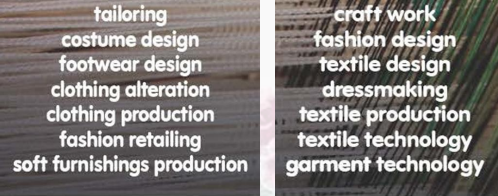
Level 1/2 Vocational Award – Hospitality and Catering
Hospitality and Catering is a vocational, practical based course which focuses on your practical cookery and service skills and will give you the opportunity to work in a variety of environments both independently and as a member of a Hospitality team.
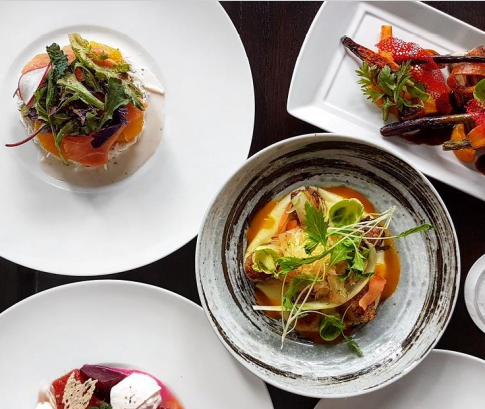
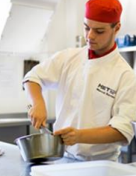
In Hospitality and Catering theory you will gain the knowledge and understanding of the hospitality and catering industry and how it operates both front and back of house, hospitality and catering provisions (food/supplies), health and safety in the industry and food hygiene/safety. You will gain an understanding of different job roles in the industry and the skills and qualifications needed to do these jobs well. From the restaurant brigade to housekeeping, from Patisserie Chef, to Head Chef.
Lessons A combination of practical and theory lessons every fortnight.
Non Exam Assessment 60% Hospitality & Catering In Action –
To research, plan, prepare, cook and present a two-course meal for 2 people with accompaniments. An opportunity to showcase your creativity and cooking skills.
Written Examination 40% –
The Hospitality Industry Theoretical knowledge of the Hospitality Industry will be assessed through a written examination.
Careers Working Wales
Hospitality & Tourism The Hospitality Industry is the 3rd. largest employer in the UK and has the highest level of labour growth of any industry. There is high demand for people to work in the sector and Cardiff is one of the hotspots! This qualification in Hospitality can help you take your first steps towards employment or a career in events, catering or accommodation across the world, e.g. Chef, waiter/waitress, receptionists, hotel and bar managers, events planner, baker, marketing, journalism, teaching, sports science, armed services, cruise liners or food technologists in food manufacturing.
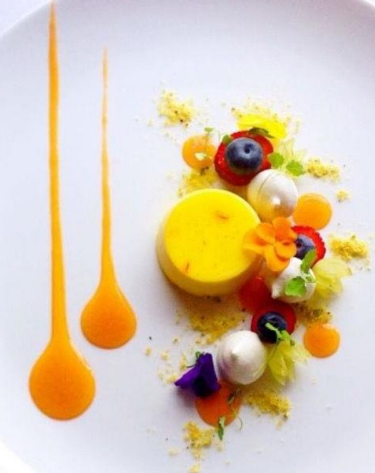 Careers Working Wales: Hospitality & Tourism The Hospitality Industry is the 3rd. largest employer in the UK and has the highest level of labour growth of any industry. There is high demand for people to work in the sector and Cardiff is one of the hotspots!
Careers Working Wales: Hospitality & Tourism The Hospitality Industry is the 3rd. largest employer in the UK and has the highest level of labour growth of any industry. There is high demand for people to work in the sector and Cardiff is one of the hotspots!
This qualification in Hospitality can help you take your first steps towards employment or a career in events, catering or accommodation across the world, e.g. Chef, waiter/waitress, receptionists, hotel and bar managers, events planner, baker, marketing, journalism, teaching, sports science, armed services, cruise liners or food technologists in food manufacturing.
GCSE Food and Nutrition
GCSE Food and Nutrition is a practical based - hands on course which focuses on your practical cookery skills and will give you a strong understanding of nutrition and food science.
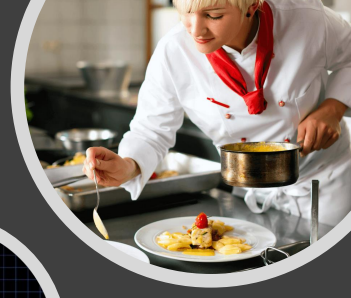
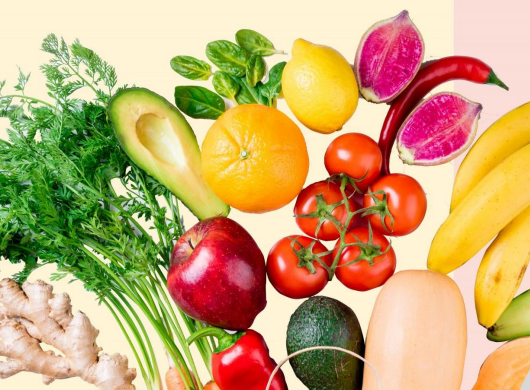
Non-Exam Assessments – 60% of final grade
Task 1 : Food Investigation Task A task to demonstrate your knowledge and apply your understanding of the science behind cooking. You will investigate ingredients and explain how they work and why.
Task 2 : Food Preparation Task To research, plan, prepare, cook and present a three dish menu with accompaniments. An opportunity to showcase your creativity and cooking skills. Written
Examination – 40% of final grade
Theoretical knowledge of food preparation and nutrition from the five core topics will be assessed through a written examination. Lessons A combination of practical and theory lessons every fortnight
GCSE Design & Technology: Product Design
In studying Design & Technology you will be prepared to participate confidently and successfully in an increasingly technological world; to be aware of and learn from wider influences on design and technology, including historical, social/cultural, environmental and economic factors, developments in materials technology and emerging technologies. You will have the opportunity to design, develop and make a product of your own design from an idea through to the finished prototype, choosing your preferred material.

Course overview
Year 10: You will be working with a range of materials
including wood, metal, plastics and electronics. learning
through focused practical tasks to develop your skills in:-
✓ designing,
✓ model-making,
✓ prototype making and testing,
✓ problem-solving skills,
✓ presentation drawing,
✓ Technical drawing, and
✓ computer aided design and manufacture, e.g. 3D
design, the laser cutter
You will develop an understanding of materials and their
properties. You will study ethical and sustainability
issues, famous designers and how to carry out
investigative research.
Coursework (NEA) Year 11: you will be assessed on a Design and Make Task, a non-examination assessment:. This is worth 50% of your final GCSE grade.
You will be given the opportunity to complete a project in which you will choose 1 of three challenges. You will get to choose the material to work with and freedom to design your own product creating designs, prototypes and then your final outcome. Alongside your practical work you will present a portfolio that follows the design process building on your Key Stage 3 skills and with the opportunity for experimentation.
Written Paper: There will be a 2 hour written examination paper to complete when you are in year 11. This is also worth 50% of your overall grade. Written paper Careers.
NVQ Level 1/ Level 2 Engineering Wood/Carpentry or Metal
In Engineering: Metal you will learn about the world of Engineering, Computer Aided Design, machining techniques and mathematics for engineering. You will learn and practise the fundamental skills including metal working, technical drawing, computer aided design, practical maths skills and problem-solving using drawings and diagrams for practical tasks. You will also study the relevant health and safety requirements to ensure that all aspects of an engineer’s operative role can be carried out safely.
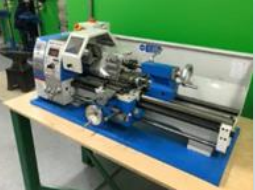
You will learn: Practical technical skills required for professional technical engineering roles. You will be completing focused tasks in engineering processes, including metal machining techniques and Computer Aided Design, such as the toolmakers clamp, and toolbox, alongside how to interpret technical drawings and diagrams for your practical tasks. Your practical skills will be assessed as successful if outcomes are within prescribed tolerances. You will learn: Engineering theory and present your knowledge through 6 units of question and answer booklets presented in a portfolio in which you will also record the outcomes of your practical assessments. This qualification is 100% coursework.
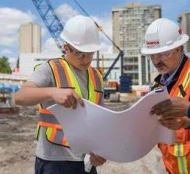 D
D
In Engineering: Wood you will learn the fundamental skills and knowledge needed to carry out a range of activities common to all wood-working/carpentry practices. You will learn and practise wood working skills, technical drawing, computer aided design, practical maths skills, problem-solving, developing your skills for roles within the technical & professional Carpentry & Construction Industry. You will also study the relevant health and safety requirements to ensure that all aspects of the operative role can be carried out safely.
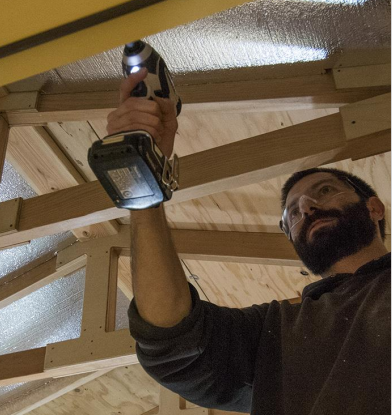
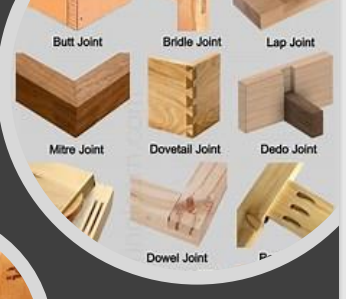
You will learn: Practical technical skills required for professional carpentry and construction roles. You will be completing focused tasks in wood, involving a range of carpentry and joining tasks, to include a phone holder, push stick, marking gauge, speaker box, and toolbox alongside how to interpret technical drawings and diagrams for your practical tasks. Your practical skills will be graded for quality within prescribed tolerances.
You will learn: wood-work theory and present your knowledge through 6 units of question and answer booklets presented in a portfolio in which you will also record the outcomes of your practical assessments. This qualification is 100% coursework.


